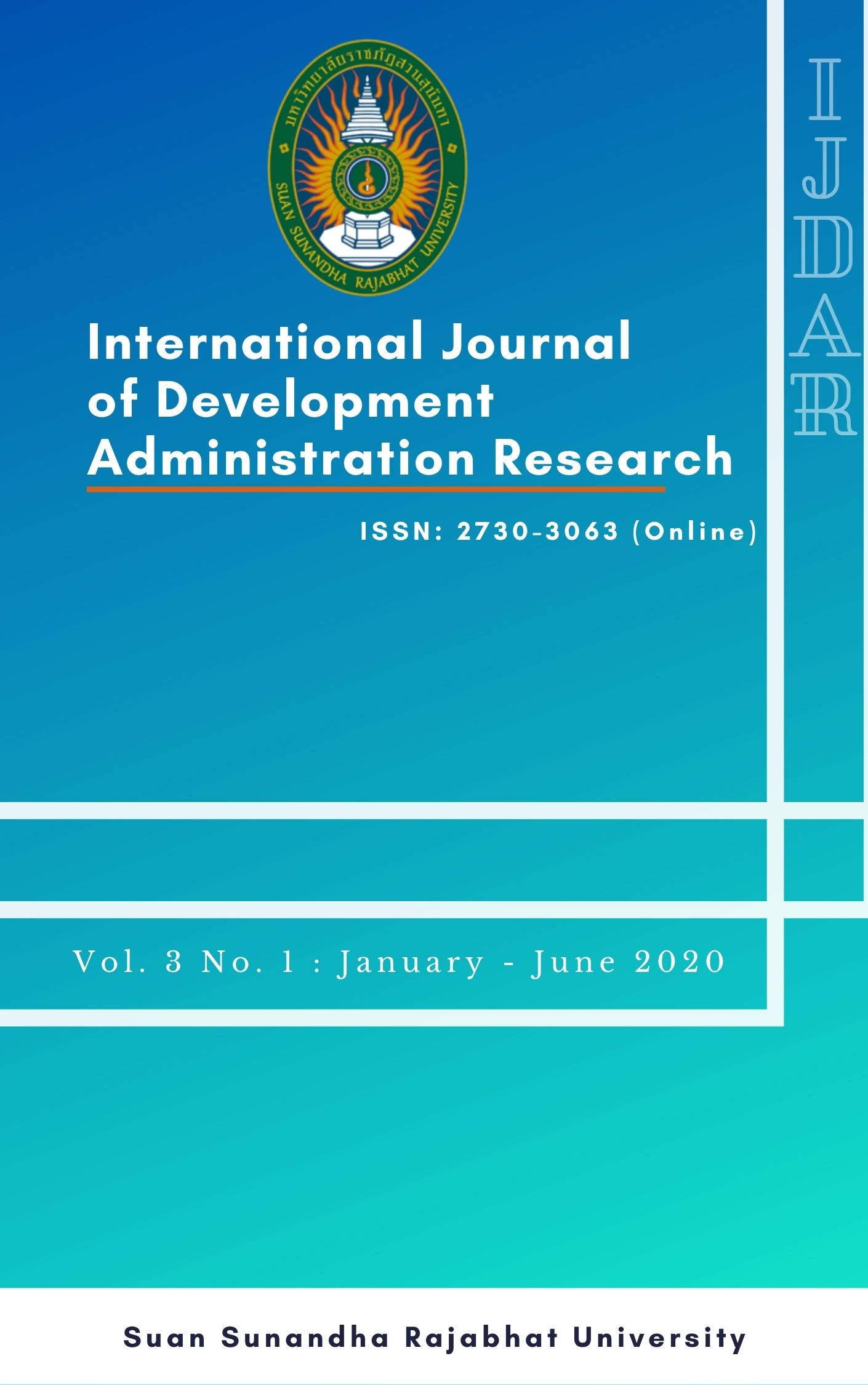Promoting Instruction of Knowledge and Morality Subject in Institution of Higher Education
Main Article Content
Abstract
This research had the objectives to study the scope of contents of Knowledge and Morality subject; the instructional models; and the achievement evaluation of learning outcomes in the aspect of learners’ profession. It was the qualitative research. Data collection were through the analysis of various documents relating to morality-ethics in the context of institutions of Higher Education and through the in-depth interview of the sixteen key informants consisting of the institutional executives, instructors of Knowledge and Morality subject, and academicians. Data was analyzed and descriptively presented.
Research findings were as follows: Scope of contents of Knowledge and Morality subject accommodated the fundamental concepts, definition, importance, components, and values in subsistence with the social conscientiousness, including the morality-ethics related activities. Such scopes of content were well in accordance with the learning outcomes the Higher Education Commission had determined. Regarding instructional models, it could be designed to be (1) Cognitive-oriented, i.e. the group discussion learning, projected-based learning, integrated learning, 4 MAT learning approach; (2) Participatory-oriented, i.e. participatory learning, learning by group process (or group dynamics), collaborative learning; (3) Psychomotor-oriented, i.e. instructions relating to model, affective-domain learning, case study, role play, and simulation; (4) Integrated learning to assimilate morality-ethics as the intervention with the multidisciplinary sciences. Regarding the authentic evaluation of learning outcomes, it was found the difficulties because the morality-ethics was naturally and highly abstract. The measurement could not be just limited through the written examination only. The wide variety of pre-learning, formative and summative measurements with the continuity should be adopted and implemented to evaluated the achievement of learning outcomes compared with the learning objectives predetermined.The aforementioned evaluation took quite a lot of time and didn’t limit to the context of classroom only. Therefore, employers’ satisfaction and expectations on the overall performance of graduates would be another critical and authentic indicator as well. All of these instructional designs were regarded as the new paradigm of promoting the instruction of Knowledge and Morality Subject in institution of Higher Education in the age of Education 4.0.


